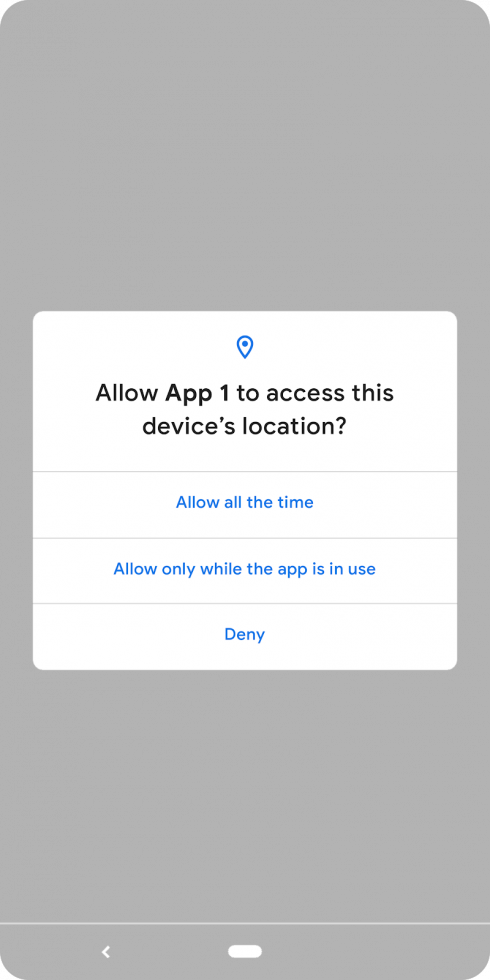
The upcoming release of Google’s operating system was unveiled this week, and the company is now giving insights into how it will handle location data and what that will mean for developers.
According to the company, while location data can be imperative to giving users recommendations based on where they are, it is also a very sensitive type of personal user information. The company will be providing new location permissions in Android Q to give users more control.
“Previously, a user had a single control to allow or deny an app access to device location, which covered location usage by the app both while it was in use and while it wasn’t. Starting in Android Q, users have a new option to give an app access to location only when the app is being used; in other words, when the app is in the foreground,” Jen Chai, product manager at Google, wrote in a post.
RELATED CONTENT: Google unveils the next version of Android
Users will be given three options when it comes to providing their location: allowing the app to access location all the time, allowing the app to access location while it is in use, or completely restricting the apps ability to access location. “The new location control allows users to decide when device location data is provided to an app and prevents an app from getting location data that it may not need,” Chai wrote.
Developers can prepare for this change by taking a look at the new features in the first Q beta release. They can also take advantage of the company’s developer guides and privacy checklists. Apps will have to provide new permissions when targeting Android Q. If an application is targeting Android 9 and lower, the permissions will be automatically added, the company explained.
In addition, the company suggests developers provide a clear understanding on what the app needs to use location data. Chai explained users are more likely to grant permission if they are given context.
“To maintain a good user experience, design your app to gracefully handle when your app doesn’t have background location permission or when it doesn’t have any access to location,” Chai wrote.






